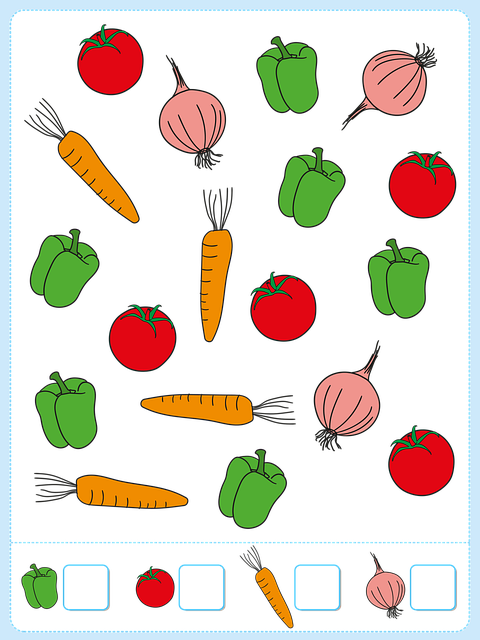PreK Worksheets or Pre-kindergarten (PreK) is a critical stage in a child’s development, serving as a foundation for future academic success. One of the most effective ways to reinforce learning at this stage is through worksheets. PreK worksheets are designed to introduce young learners to basic concepts in a fun and engaging way. They cover a variety of subjects, including literacy, numeracy, fine motor skills, and social-emotional development. These worksheets not only prepare children for kindergarten but also nurture curiosity and creativity.

Importance of PreK Worksheets
Worksheets play a significant role in early childhood education. They provide structured learning experiences that help children grasp fundamental concepts. By using PreK worksheets, children develop hand-eye coordination, problem-solving skills, and cognitive abilities. These worksheets also allow children to practice skills repeatedly, reinforcing learning in an interactive and enjoyable manner. Moreover, they serve as an excellent tool for parents and teachers to assess a child’s progress and identify areas that need improvement.
Types of PreK Worksheets
PreK worksheets come in a variety of forms, each targeting different developmental areas. Some of the most common types include:
- Alphabet and Phonics Worksheets: These worksheets introduce children to letters and sounds, helping them recognize and differentiate alphabets. Activities like letter tracing, matching uppercase and lowercase letters, and identifying beginning sounds are common in these worksheets.
- Number and Counting Worksheets: Designed to develop numeracy skills, these worksheets include number recognition, counting exercises, tracing numbers, and basic addition and subtraction activities.
- Fine Motor Skill Worksheets: These worksheets focus on improving hand strength and dexterity through activities like cutting, tracing, and coloring. Such tasks help children develop the motor control necessary for writing.
- Shapes and Colors Worksheets: Introducing children to different shapes and colors enhances their observation skills and ability to categorize objects. Activities like matching shapes, coloring exercises, and shape tracing are often included.
- Pattern and Sorting Worksheets: These help children develop critical thinking and logical reasoning by identifying patterns, sorting objects by size or color, and completing sequences.
- Pre-Writing Worksheets: These worksheets prepare children for handwriting by including tracing lines, curves, and simple drawings to build muscle memory and control.
- Science and Nature Worksheets: Simple science-related worksheets introduce children to the world around them, including topics like weather, animals, plants, and seasons.
- Social Skills Worksheets: Teaching children about emotions, manners, and daily routines helps develop their social and emotional intelligence. Worksheets may include activities such as identifying facial expressions or learning about good habits.
Benefits of Using PreK Worksheets
PreK worksheets provide multiple benefits to both children and educators. Some of the key advantages include:
- Enhancing Early Literacy and Numeracy: By exposing children to numbers, letters, and words early, worksheets help them develop foundational skills essential for reading and mathematics.
- Building Fine Motor Skills: Activities like tracing, coloring, and cutting improve a child’s hand-eye coordination and finger strength, preparing them for writing tasks.
- Encouraging Independent Learning: Worksheets allow children to work at their own pace, helping them develop confidence and self-reliance in their learning abilities.
- Providing a Fun Learning Experience: Many worksheets include engaging graphics, interactive activities, and games that make learning enjoyable for young learners.
- Reinforcing Concepts: Repetition is key in early education. Worksheets allow children to revisit concepts multiple times, ensuring a better understanding and retention.
- Offering Assessment Opportunities: Parents and teachers can use worksheets to evaluate a child’s progress, strengths, and areas that need further attention.
- Preparing for Kindergarten: By introducing structured learning, worksheets help children transition smoothly from PreK to kindergarten.
Tips for Using PreK Worksheets Effectively
To maximize the benefits of PreK worksheets, it is essential to use them strategically. Here are some tips to ensure effective use:
- Make Learning Interactive: Instead of just handing out worksheets, engage with the child by discussing the activities and making them fun.
- Choose Age-Appropriate Worksheets: Select worksheets that match the child’s developmental level to prevent frustration or boredom.
- Incorporate Hands-On Activities: Pair worksheets with real-world activities such as counting objects, drawing shapes in the sand, or tracing letters with fingers.
- Use Positive Reinforcement: Encourage children by praising their efforts and providing rewards for completion to boost motivation.
- Limit Worksheet Time: While worksheets are useful, children should also engage in play-based learning and hands-on exploration.
- Be Flexible: Allow children to complete worksheets at their own pace, avoiding pressure or excessive corrections.
- Encourage Creativity: Some worksheets allow children to color, draw, or add personal touches, fostering creativity and self-expression.
Printable and Digital PreK Worksheets
With advancements in technology, PreK worksheets are available in both printable and digital formats. Printable worksheets allow children to work with pencils, crayons, and scissors, enhancing their fine motor skills. On the other hand, digital worksheets on tablets or interactive whiteboards provide an engaging, multimedia experience. Many online platforms offer free and paid PreK worksheets that cater to various learning styles and preferences.
Conclusion
PreK worksheets serve as a valuable educational tool, helping young learners build foundational skills in a structured yet enjoyable manner. Whether used at home or in a classroom setting, these worksheets provide numerous benefits, from enhancing literacy and numeracy to fostering social and motor skills. By selecting appropriate worksheets and incorporating interactive elements, parents and teachers can make early learning both effective and enjoyable. With the right balance of worksheets and play-based activities, children can develop a love for learning that lasts a lifetime.